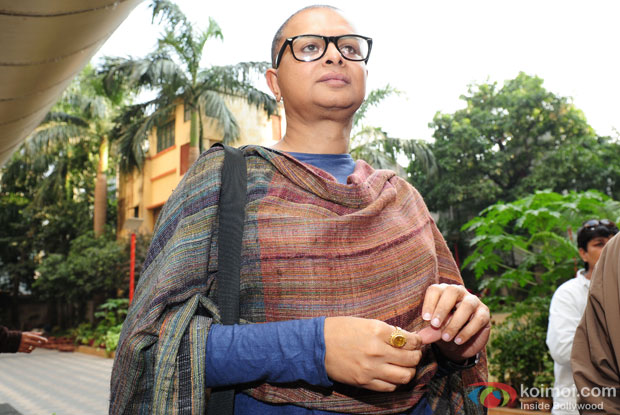In Rituparno Ghosh, the film fraternity lost a film maker and a writer who had the prevailing capability of engrossing his readers. And personally everyone laments the loss of a crusader of feminist and LGBT cause. I recently read an orbituary statement professing that he understood the women folk better than women themselves! Indeed, because he was uninhibited! He was the creator of Utopian parallel society that still has a long way to go before it sees the wake of dawn.
From under this man’s hat came masterpieces like Unishe April and Bariwali, mostly Dahan. Renowned film makers proclaimed that Ghosh had an impeccable understanding of cinema. Personally, every Bengali felt an unbearable sense of fragility in his loss precisely for the man’s eloquent love for progressive art and cinema.
Why is this sorrow so profane? Perhaps mainstream society won’t understand but those who have an heartfelt urge towards sensitive cinema and tender issues will. Representing sexual minorities, Ghosh did it like a crusader. He wore his effeminate self with utmost ease. Slipping into flowing attires and fashionable turbans, his striking kohl rimmed eyes were beautiful; he had the look of a queen! Indeed he was that to many who have been victimized on the sexual front. Compelled to shovel their true selves inside the closets, this man gave them courage by enigmatically coming out in open about his real self.

The keen thing about him was that he never specified himself into a category. He never said he was gay, or he was transgender or he was a woman. Simply Rituparno defined him well enough.
Unlike queer film makers, he never harped excessively on queer issues. He made films on relationships, on deceitful friendships and marital rapes, sexual repression and stories that were heart melting. Ghosh was a figure who represented bold and simplicity together!
Sexual politics was a topic quaintly close to his heart. In each of his films, the dynamics came off well. Adapting Tagore’s works multiple times, he changed the flavor by rendering a contemporary and bold drape on the story’s climax. He was an activist undoubtedly, but he never did it blatantly or overtly. Perhaps one of the most pivotal landmarks of the man’s life was how he attempted to blur the gender margins, a largely overwhelming heterosexual society imposes on us!
Ghosh’s ability to pose such subtle questions through his works will be missed! He framed a volatile, value-free in terms of gender, connotation of cinema. Winner of 12 National Awards isn’t his real achievement. His real achievement was defying the need to fall under the category of a he or she! Rituparno is a class you carve out for yourself, in terms of cinema and in terms of personality. And mind you, it requires tremendous courage to be him.



 Follow Us
Follow Us









